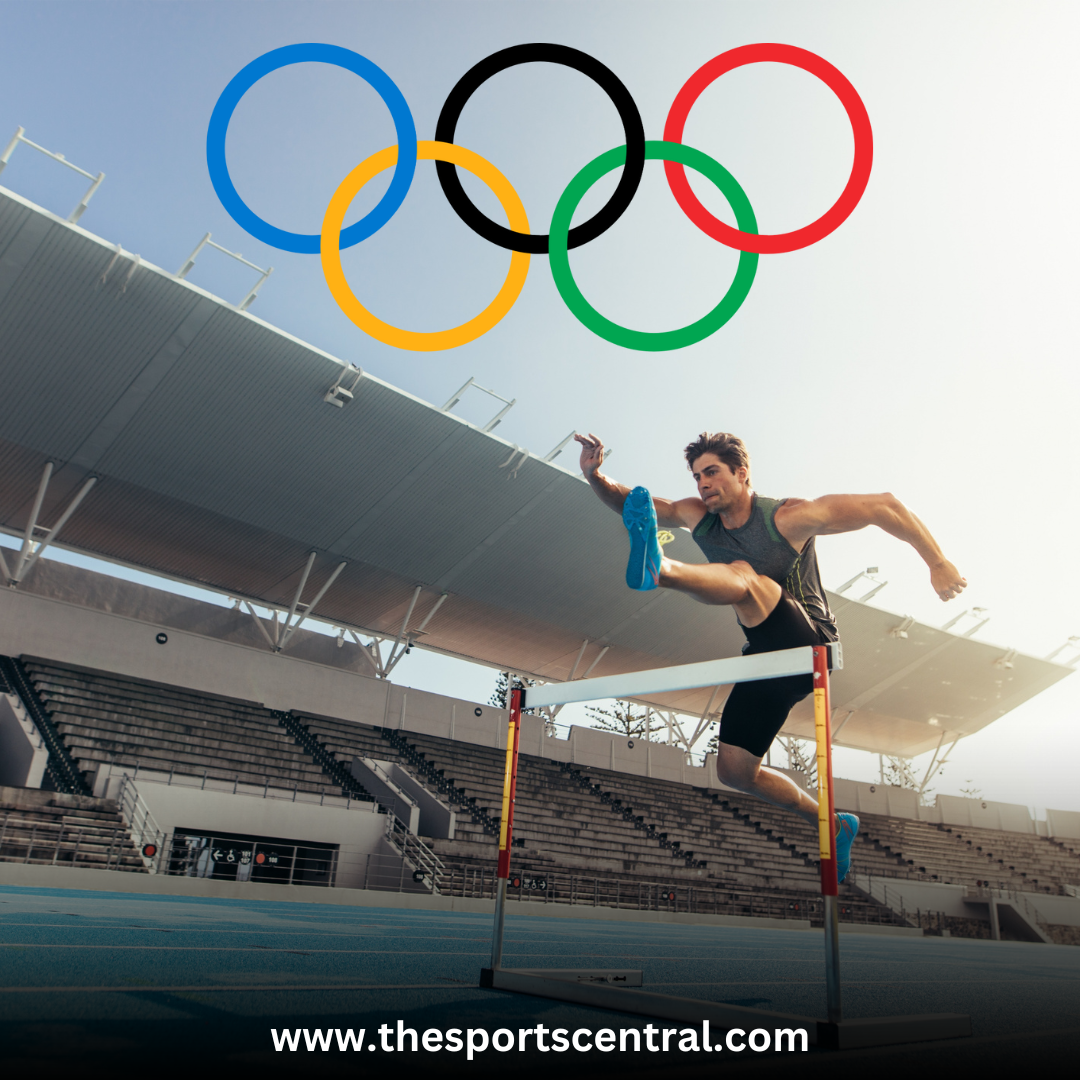India has taken a bold step toward potentially hosting the 2036 Summer Olympics by submitting a “Letter of Intent” to the International Olympic Committee (IOC). This letter, sent on October 1 to the IOC’s Future Host Commission, marks India’s official interest in staging the Summer Olympics and Paralympics. While informal talks had been ongoing, this submission is India’s first concrete move toward the Games.
However, India’s bid faces stiff competition. IOC President Thomas Bach revealed that over ten countries have expressed interest in hosting the 2036 Olympics. Among these contenders, nations like Saudi Arabia, Qatar, Indonesia, Chile, and Turkey have emerged as strong competitors. Hosting the Olympics would be a historic achievement for India, but the journey is challenging, with each competitor bringing unique strengths to their bid.
Competing for the Olympics: India’s Main Rivals
Several countries have already demonstrated their readiness and commitment to host the Olympics, including Qatar, Saudi Arabia, Turkey, and Indonesia. Each nation presents unique attributes and strategies that may give them an edge in the IOC’s selection process.
1. Qatar: A Proven Host of Major Events
Qatar has experience in hosting large-scale sports events. In 2022, it successfully held the FIFA World Cup, showcasing its world-class facilities and infrastructure. While Qatar has yet to submit an official bid for the 2036 Olympics, its representatives have expressed confidence in their country’s ability to host the Games. Over the years, Qatar has invested heavily in training facilities, state-of-the-art stadiums, and luxury accommodations. Its bid will likely emphasize Qatar’s readiness and past successes, making it one of India’s toughest competitors.
2. Saudi Arabia: A Growing Sports Power
Saudi Arabia has been investing billions in infrastructure and global sports initiatives. Its ambition to host the Olympics reflects its vision of becoming a sports powerhouse. The country has hosted various sports events in recent years, including Formula 1 races, boxing matches, and professional golf tournaments. While Saudi Arabia faces challenges, including climate concerns, its financial strength and commitment to sports development could bolster its bid.
3. Turkey: Experience Without Success
Turkey, specifically Istanbul, has applied to host the Olympics four times without success. Despite previous rejections, Istanbul remains a strong contender. Known for its rich history and location between Europe and Asia, the city offers a unique blend of cultures and experiences. In addition, Istanbul has extensive experience with international events, including hosting the 2027 European Games. With each attempt, Turkey has improved its bid, and it remains a formidable competitor for the 2036 Games.
4. Indonesia: Asia’s Growing Contender
Indonesia has also entered the race for the 2036 Olympics, showing its dedication by sending a delegation to the Paris 2024 Games. Indonesia’s presence at international events like the G20 summit highlights its ambition. The country aims to strengthen its global sports profile, emphasizing its youthful population and readiness to host major international events. Indonesia’s large and growing economy adds weight to its bid, making it a significant player in the Asian sports scene.
The Unwritten Rule of Continental Rotation
The IOC often follows an unwritten rule of rotating the Olympics among continents, and the 2036 Games may be viewed as Asia’s turn. With Paris hosting the Games in 2024 (Europe), Los Angeles in 2028 (Americas), and Brisbane in 2032 (Oceania), an Asian country may have a greater chance of securing the 2036 Games. However, this is not a formal rule, so other continents cannot be ruled out entirely. Even with an unofficial rotation, India must outperform other Asian contenders to secure its place.
India’s Next Steps in the Bidding Process
With the “Letter of Intent” submitted, India moves into the Continuous Dialogue phase of the host selection process. In this stage, the IOC assesses India’s potential as a host through a feasibility study. The study examines essential factors, including human rights, social responsibility, and environmental sustainability, with input from independent sources like the International Union for Conservation of Nature (IUCN).
If the IOC’s Future Host Commission finds India’s proposal feasible, they may recommend that India move to the Targeted Dialogue phase. In this phase, India would be recognized as a “Preferred Host” for the 2036 Games. Ultimately, the IOC Executive Board will decide on the final host after reviewing detailed reports and recommendations from the commission. If India reaches this stage, it will present its project to IOC members for a final vote.
The Financial and Logistical Challenges of Hosting the Olympics
Hosting the Olympics is a prestigious opportunity, but it comes with significant financial and logistical challenges. While hosting the Games can elevate a country’s global standing, history has shown that it can also lead to economic setbacks if poorly managed.
For instance, the 1976 Montreal Olympics became notorious for cost overruns, with an initial budget of $250 million soaring to $1.4 billion. The debts took 30 years to pay off, creating lasting financial strain. Similarly, the 2004 Athens Olympics saw Greece spend over $15 billion, with some attributing this excess to the country’s later economic crisis. These examples highlight the risks associated with hosting the Games without a sustainable financial plan.
Success Stories: The Benefits of a Well-Executed Olympics
Not all Olympics result in financial losses. The 2012 London Olympics stands as a model for successful hosting. London invested in dynamic, temporary venues that minimized costs while maximizing functionality. London’s Olympic Stadium became a versatile arena, used for football, concerts, and even Major League Baseball games. This adaptability has helped the stadium generate ongoing revenue, showcasing how thoughtful planning can lead to long-term benefits.
India’s government will need to carefully assess the financial impact of hosting the Olympics. Detailed budget planning, innovative use of infrastructure, and sustainable development practices will be essential to ensure that the Games benefit India economically and socially.
The Potential Impact on India
If successful, India’s Olympics bid could drive several positive changes, including:
- Infrastructure Development: Hosting the Olympics requires massive investments in transportation, housing, and sporting facilities. This infrastructure could serve India for years beyond the Games, boosting connectivity and modernization in urban areas.
- Tourism and Global Recognition: The Olympics could attract millions of visitors and showcase India’s culture, history, and attractions to a global audience. Tourism would boost the economy, generating income and creating jobs.
- Sports Development: Hosting the Olympics could inspire future athletes and elevate sports in India. The Games could lead to improvements in training facilities, funding, and support for Indian athletes.
- Economic Boost: Proper planning could create thousands of jobs, from construction to hospitality. The economic ripple effect could uplift communities and support long-term growth.
Conclusion: A Historic Opportunity for India
India’s bid for the 2036 Olympics represents a historic opportunity to place the nation on the global sports stage. While competition is fierce, India’s proposal reflects ambition, pride, and potential. To succeed, India must demonstrate its readiness to manage the Games sustainably and inclusively, setting an example for future hosts.
As India advances through the IOC’s bidding process, a strategic, well-planned approach will be crucial. With careful financial planning, innovative infrastructure solutions, and a commitment to social responsibility, India has a chance to make history. The journey ahead is challenging, but the potential rewards make it worth pursuing. If successful, the 2036 Olympics could be a transformative moment, showcasing India’s capabilities and vision to the world.











Im not sure where you are getting your info, but great topic. I must spend a while finding out more or working out more. Thanks for excellent information I was on the lookout for this information for my mission.